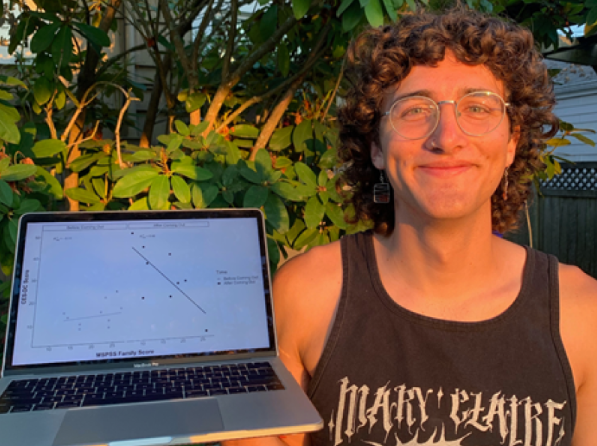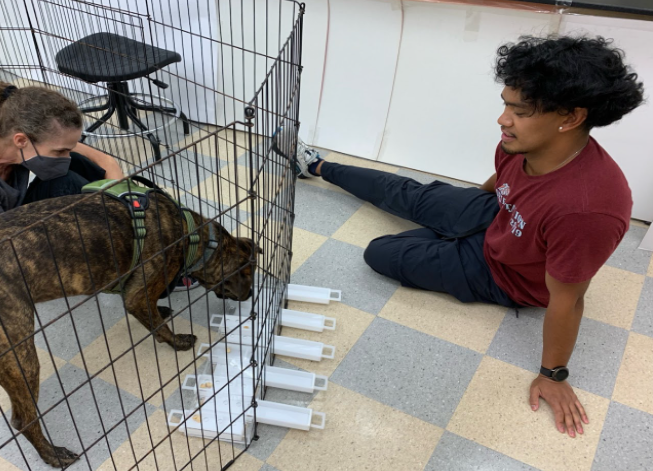Students in the Neuroscience emphasis have worked in labs both at University of Puget Sound and outside. Here is a list of current and past student research, with links to their posters/presentations:
Hayden Smith ‘23 - Perceived Familial Social Support After Coming Out Predicts Mental Health in Gender-Diverse Adolescents
This study aimed to explore the social experiences of Gender-Diverse (GD) youth and how they influence mental health using longitudinal data collected by the developmental social neuroscience (DSN) lab at the University of Oregon. The data included survey responses from 157 cis-gender, and 17 GD adolescents (age 9-18) from four time points that were approximately 18 months apart. Coarsened Exact Matching based on demographic variables was used to create a cis-gender matched pairs sample (n = 13) for participants who had indicated a GD identity by the third time point. We found a significant decrease in perceived familial social support between wave 1 (W1) and wave 3 (W3) and waves 2 (W2) and W3 for the GD group only. Additionally, we found significant predictive relationships between depression and perceived familial social support at W3 and at the first point an individual indicated their GD identity, suggesting that the negative impacts of perceived familial social support (either after coming out or by W3) in GD adolescents contributes to depressive symptomatology.
Hayden Smith - Psychology (BA), Gender & Queer Studies (MN), Neuroscience (MN) | Faculty advisor: Melvin Rouse | 2022-2023 Academic Year

